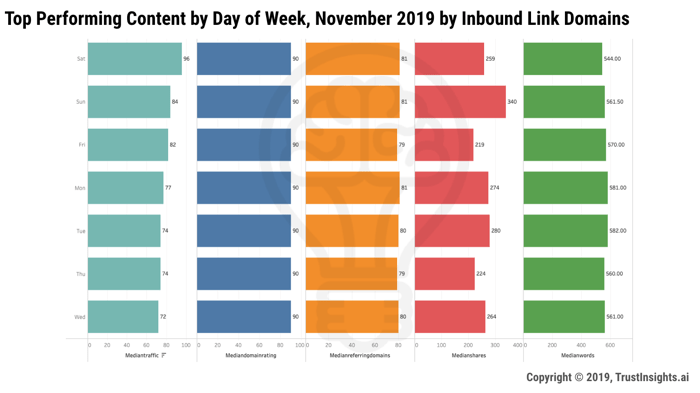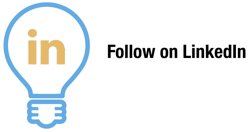“If you don’t know where you’re going, any road will get you there.” – Lewis Carroll
Around this time of year, everyone’s talking about their plans for the next year, and in this case, the next decade. Apart from the usual resolutions, one of the major topics that always comes up is professional development and training. Working professionals always cite a lack of time or resources for professional development, and companies consistently list professional development and training as a high priority. In the most recent CMO Survey, CMOs indicated that 5.8% of marketing budget was spent on training and development, the highest in 5 years.
Yet our marketing isn’t getting better. With budget, with unlimited free resources, with free tools and software, why are we not absolutely crushing our professional development and training goals?
When you ask marketers about training and development, often they’ll say they want to attend some conferences, take some courses, etc. but rarely do they say what their intended outcome is. This is the difference between someone who’s doing some professional development, and someone who’s on a professional journey.
A journey indicates a destination. You’re going somewhere. You’ve got an end state, an outcome, a future vision of who you want to be with crystal clarity, and every minute, every dollar you have allocated towards professional development goes towards the pursuit of that goal, reaching that destination.
Contrast that with someone who takes a bunch of classes, maybe attends a conference, but doesn’t have that motivation, that burning fire to be someone different at the end of their pursuit. They’ll consume professional development resources, but they won’t grow as a professional.
So, the question for you is, what’s your professional journey? Where are you going? Who will you be when you get there? Before you sign up for a single class, course, or conference in 2020, be absolutely clear in your own mind about your journey and your destination.
A handful of people have said the link doesn’t work (because it opens a new, pre-filled email message); if that capability is blocked in your mail reader, just send an email to [email protected] with Unsubscribe (your email address here) as the subject and the body, and the automated script that processes unsubscribes will take it from there.

This week’s Bright Idea is a PDF from the US Federal Trade Commission. It’s a brochure which explains in great detail what is expected of influencers to disclose. Some things worth noting:
- Financial value means anything of value at all – so that free shirt, free software subscription, discount, etc. are all things that must be disclosed. If it’s given, you have to declare it if you create content about it.
- Disclosures must be atomic, meaning they are embedded in the media. That means that if you put up a photo with sponsored/gifted items, you must disclose within the photo itself, not just in the caption with the photo.
- Disclosures must be truthful. The FTC specifically calls out testimonials for products you haven’t tried.
Download the PDF directly from the FTC here:

In the rear view this week, we examine the top-linked content of November 2019. Using AHREFs data, what do the top 62,000+ English-language articles, posts, and publications have in common? We looked at any content published in November 2019 (excluding republished content) with 50 or more referring domains (inbound links from 50+ unique domains) to see top-line statistics:

- In terms of raw content, the average piece of content had 567 words, shown in green bars above.
- The median number of referring domains was 80, shown in orange bars above.
- The median number of readers for any given piece of content was 78, show in teal bars above.
- The median domain authority was 90, shown in dark blue bars above.
- The median number of social shares across Facebook, Twitter, and Pinterest was 257, shown in red bars above.
- In terms of days of the week, articles published on Saturdays, Sundays, and Mondays had 81 referring domains. Tuesdays and Wednesdays earned 80, Thursdays and Fridays earned 79.
- Tuesdays were the highest traffic days, with a median of 96 readers per article. The lowest readership day was Wednesdays.
What are the key takeaways? At least in terms of getting actual humans to read our content, Tuesdays seemed to perform the best in November. We’ll have a year-long look coming up in a future issue to see if that trend holds over time. What’s more important is that sharing vastly exceeds actual reading; people are 3 times as likely to share a piece of content as they are to read it. When it comes to allocating time and thought on optimizing content, give extra focus to the headline and article summary/preview snippet.
Methodology: Trust Insights used AHREFS Content Explorer to query the top 25 most frequent words in the English language published in articles in November 2019. The results were filtered down to articles with more than 50 referring domains for a total sample of 62,627 articles. Articles published prior to November 2019 were excluded, including republished articles which had a revised date in November 2019. The date of the study is November 1-30, 2019; the date of extraction is December 3, 2019.

- {PODCAST} In-Ear Insights: Market Research and Surveying Best Practices
- {PODCAST} In-Ear Insights: Social Media Competitive Research
- Marketing Analytics, Data Science and Leadership via November 25, 2019 Week In Review
- Content is a commodity
- Google Analytics Channel Traffic Forecast
- 5 Practical Applications of AI For Marketing Technology
- AI and SEO in the Post-BERT World: What Marketers Need to Know

Shiny Objects is a roundup of the best content you and others have written and shared in the last week.
Social Media Marketing
- Social Media Influencers and Transparency: FTC Gives New Guidance for Disclosing Brand Relationships via Institute for Public Relations
- Facebook tests tool that lets users transfer photos to Google and other platforms via Marketing Land
- How to Publish Instagram Stories From the Desktop via Agorapulse
Media and Content
- 13 Proven Tactics to Increase Your Blog Traffic
- The Demand-Gen Content Investment: Good to Great?
- 100 Experts Share Their #1 Tip for Creating Great Marketing Videos via Wave.video Blog
Tools, Machine Learning, and AI
- You Ask, I Answer: Data Quality and AI? via Christopher S. Penn Marketing Blog
- AI To Replace Two Top-Level Government Jobs In Indonesia
- Robotic Process Automation strategy: successful plan 8 steps
Analytics, Stats, and Data Science
- Now You’re Segmenting With Science: How to Use Quantitative Psychology
- What is data literacy and why are organisations investing in it? Econsultancy
- 6 Challenging Data Science Projects to Make you a Better Data Scientist
SEO, Google, and Paid Media
- How to Become an SEO Expert (8 Steps)
- Better Content Through NLP (Natural Language Processing) via Whiteboard Friday via Moz
- SEO Channel Context: An Analysis of Growth Opportunities via Moz
Business and Leadership
- The explosion of code – and no code – in marketing and martech, presented at TEDx Boca Raton via Chief Marketing Technologist
- Who Is Responsible for Biased and Intrusive Algorithms? via Knowledge@Wharton
- AI Will Empower Leaders, Not Replace Them via ReadWrite
Join the Club
Are you a member of our free, private Slack group, Analytics for Marketers? Join 500 like-minded marketers who care about data and measuring their success. Membership is free – join today.
Upcoming Events
Where can you find us in person?
- Agorapulse Social Summit, December 2020, Online – closes December 13!
- MarketingProfs Virtual Summit, December 2020, Online
- Social Media Marketing World, March 2020, San Diego, CA
- HELLO Conference, April 2020, New Jersey
- Women in Analytics, June 2020, Columbus, OH
- MAICON 2020, July 2020, Cleveland, OH
Going to a conference we should know about? Reach out!
FTC Disclosure: Events with links have purchased sponsorships in this newsletter and as a result, Trust Insights receives financial compensation for promoting them.
In Your Ears
Would you rather listen to our content? Follow the Trust Insights show, In-Ear Insights in the podcast listening software of your choice:
- In-Ear Insights on iTunes/Apple
- In-Ear Insights on Google Podcasts
- In-Ear Insights on all other podcasting software
Social follow buttons
Make sure you don’t miss a thing! Follow Trust Insights on the social channels of your choice:
Conclusion
Thanks for subscribing and supporting us. Let us know if you want to see something different or have any feedback for us!












